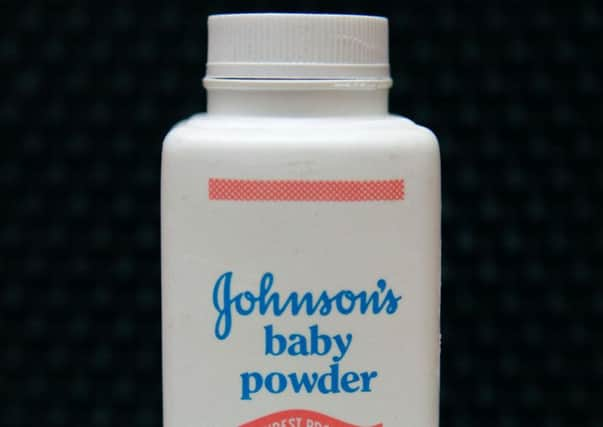Does talcum powder cause cancer and should you stop using it?


The jury’s decision to award the woman such a huge sum was the company’s biggest compensation payout to date and was a heavy PR blow for the company that sells itself on being a safe and delicate product that even newborn babies can use.
The lawsuit isn’t the only case to come to light though and Johnson & Johnson currently have other lawsuits filed against them. Campaigners argue that Johnson & Johnson did not adequately warn users about the cancer risks of the talc based products but Johnson & Johnson say their product is safe and based on scientific research.
Advertisement
Hide AdAdvertisement
Hide AdBut the case isn’t so black and white and the link between talc and cancer remains inconclusive, so here are the facts.
What is talcum powder?
In its purest natural form, the natural forming mineral talc contains asbestos which causes cancer. However asbestos free talc has been used in everything from eye shadow to condoms and latex gloves since the 1970’s. Most people will recognise talcum powder as ‘baby powder’.
What evidence says talc is safe?
Numerous studies have supported the safety of talcum powder. Most recently (April 2017) the National Cancer Institute’s Physician Data Query Editorial Board wrote on the topic of perineal talc use, “The weight of evidence does not support an association between perineal talc exposure and an increased risk of ovarian cancer.”
Other studies, such as ‘the perineal talc use and ovarian cancer: a critical review’ from the Department of Health Evaluation Sciences at the Pennsylvania State University College of Medicine discovered that “Talc is not genotoxic”.
What evidence disputes it?
Advertisement
Hide AdAdvertisement
Hide AdNot all studies have supported the use of talcum powder for genital hygiene though. In a study by the American Association for Cancer Research involving almost 2,000 women in 2013 (Genital powder use and risk of ovarian cancer: a pooled analysis of 8,525 cases and 9,859 controls) found that there was an increased risk of ovarian cancer of between 20 and 30 per cent in women who used it for genital hygiene.
It’s important to note however that studies that have supported the argument that talc does increase the risk of ovarian cancer are often skewed as many women cannot accurately state how much talcum powder they’ve used in the past.
What have Johnson & Johnson said?
Naturally, Johnson & Johnson have categorically denied the connection of ovarian cancer and talcum powder usage.
In a post on their website Johnson & Johnson said, “We do understand your concern linked to recent media reports. We want to assure you, however, that we have no higher responsibility than the health and safety of consumers and the safety of cosmetic talc is supported by decades of scientific evidence.”
Advertisement
Hide AdAdvertisement
Hide Ad“Since the early 1990s, many research papers and epidemiology studies have evaluated talc and perineal use and these studies have found talc to be safe.
“In fact, the Nurses’ Health Study (2010) and the Women’s Health Initiative Observational Cohort (2014), the only two large-scale prospective studies looking at talc and ovarian cancer, found no causal relationship between talc and ovarian cancer.”
So should I keep using talcum powder?
It’s really up to you. There have been no official warnings to stop using the product and whatever risk, it remains very low.
Cancer Research UK says that “The evidence for a link is weak, but even if talc does increase the risk of ovarian cancer studies suggest it would be by around a third”. It also recognises that ovarian cancer can be caused by a multitude of factors including the contraceptive pill and hormone replacement therapy (HRT).
Advertisement
Hide AdAdvertisement
Hide AdIn addition, the ovarian cancer charity Ovacome also acknowledges that the research delivered so far is inconclusive and that more studies will be needed to confirm whether there is a direct link between talc and ovarian cancer.
But if you’d rather not risk it, avoid applying talc to your genitals or underwear over a prolonged period of time.